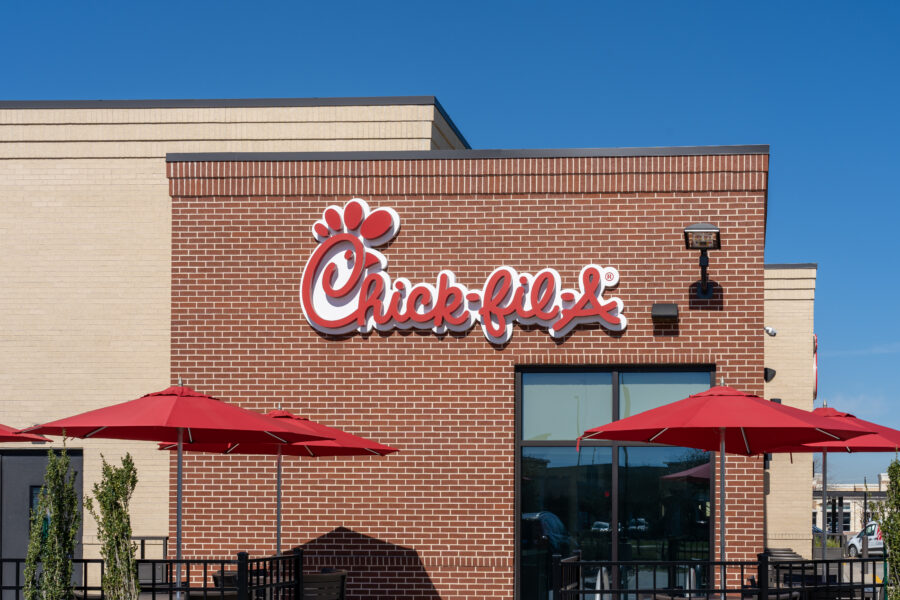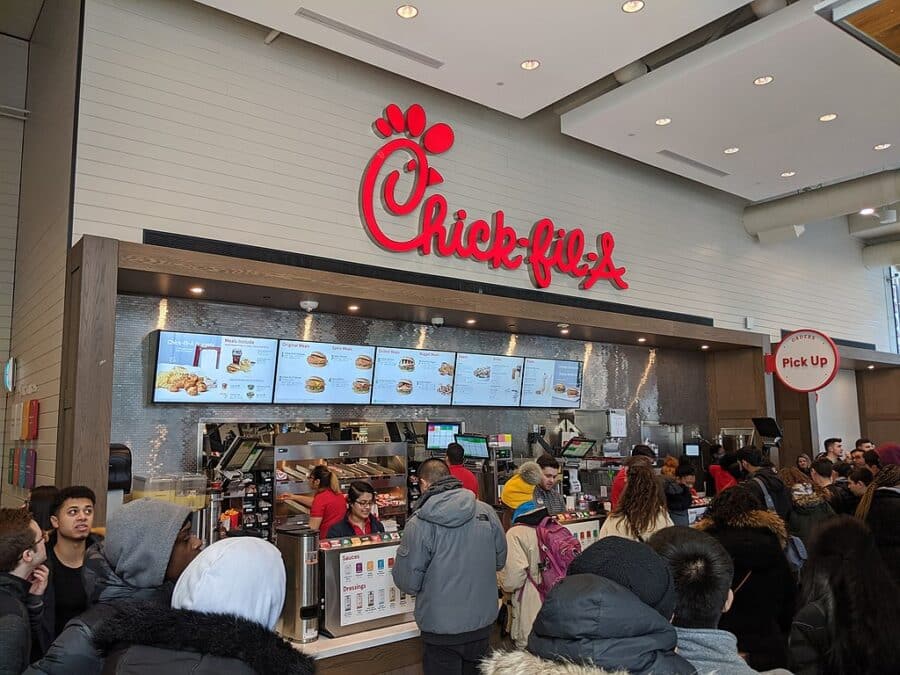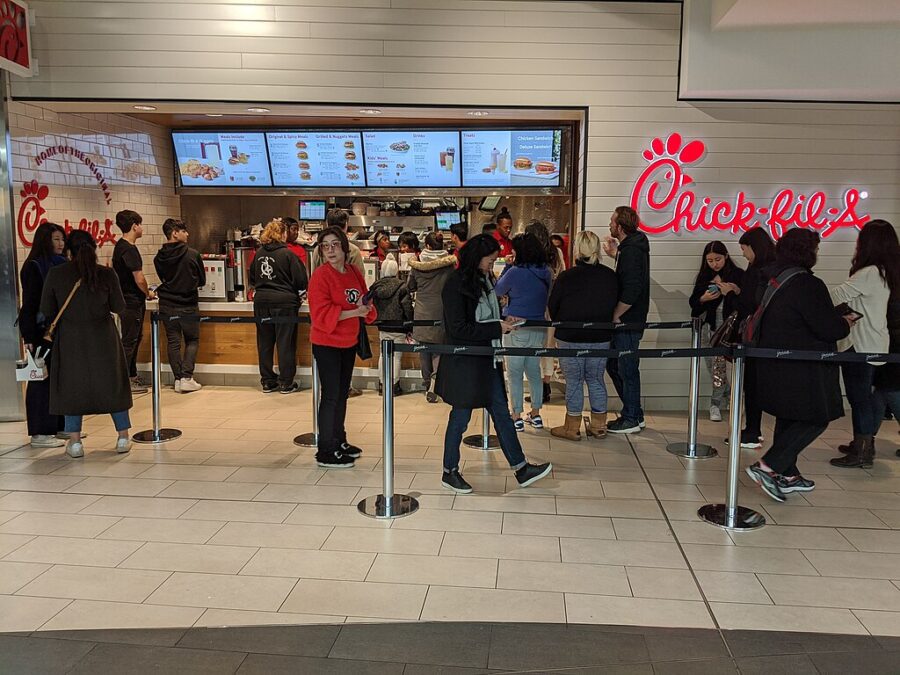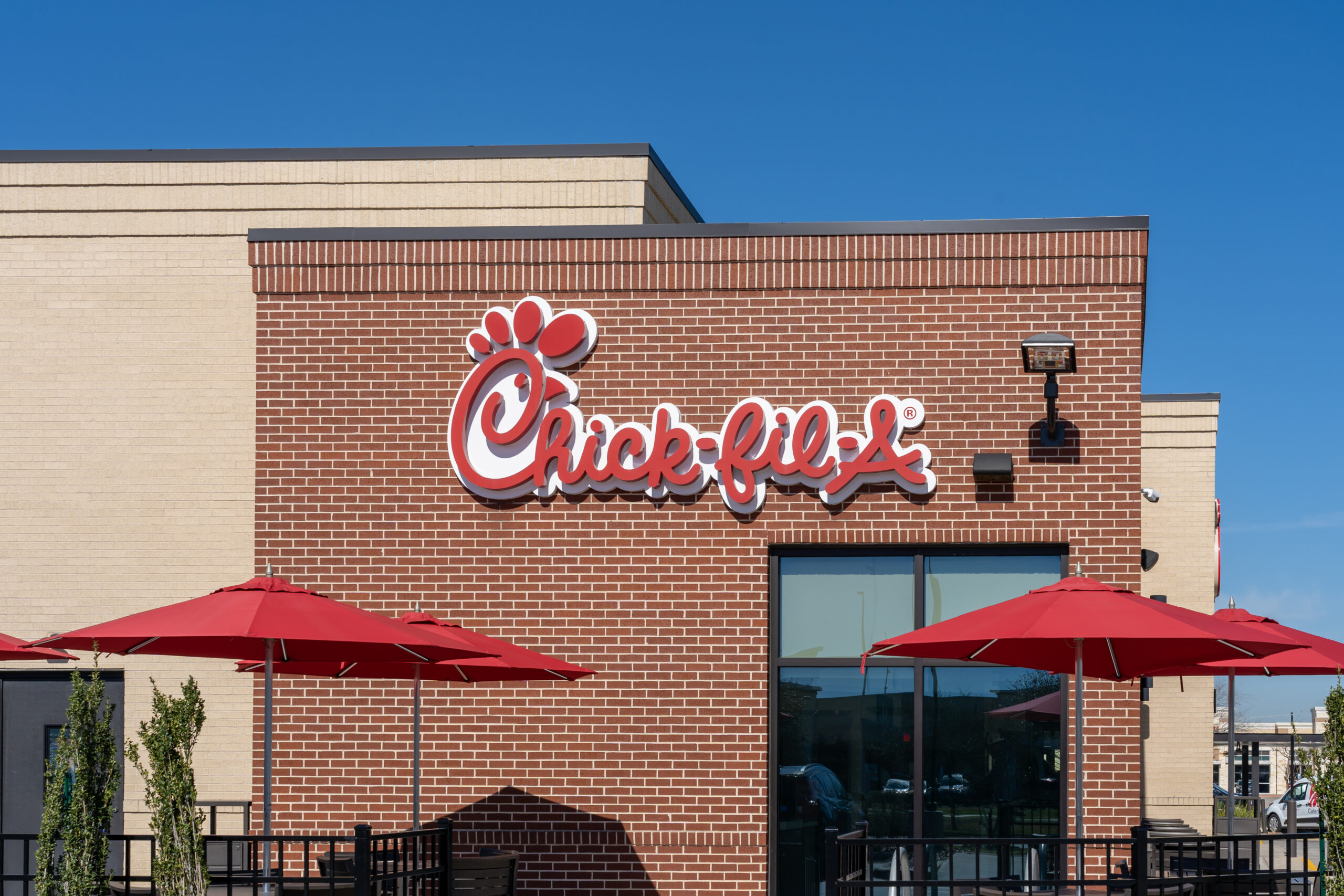
A Chick-fil-A location in Kettering, Ohio, has sparked nationwide debate with its new policy requiring teenagers 17 and under to have adult supervision while dining in. The restaurant now mandates that unaccompanied minors must be accompanied by a parent, guardian, or adult chaperone aged 21 or older, leading to heated discussions about youth discrimination, safety concerns, and business rights across social media platforms.
The Specific Policy Details and Requirements

The Kettering Chick-fil-A’s policy states that anyone 17 and under must be accompanied by a parent, guardian, or adult chaperone who is at least 21 years old to dine inside the restaurant. According to the restaurant’s Facebook announcement, unaccompanied minors may be asked to leave the premises. The policy applies specifically to dining in, while drive-through and takeout services remain available to customers of all ages without supervision requirements or restrictions.
Restaurant’s Stated Reasoning Behind the Policy

Management cited safety concerns and maintaining a family-friendly environment as primary motivations for implementing the controversial rule. The restaurant explained that the policy aims to ensure all customers can enjoy their dining experience in a peaceful atmosphere. According to local news reports, the location had experienced issues with unsupervised teenagers causing disruptions, leading to complaints from other customers about noise levels and inappropriate behavior during peak hours.
Community Backlash and Strong Criticism

The policy has generated significant negative feedback from community members who view it as discriminatory against responsible teenagers. Parents and residents have expressed frustration on social media, with many calling the blanket restriction unfair to well-behaved youth. Critics argue that the policy punishes all teenagers for the actions of a few, with one Facebook commenter noting that “pretty sad that the good kids are getting punished” for others’ misbehavior.
Support from Some Customers and Parents

Despite widespread criticism, some customers have voiced support for the restaurant’s decision to implement stricter supervision requirements. Supporters argue that the policy creates a more pleasant dining environment for families with young children and elderly customers seeking quiet meals. Several parents have praised the restaurant for taking proactive steps to maintain order, suggesting that supervised teenagers are less likely to engage in disruptive behavior that affects other diners’ experiences.
Questions About Enforcement and Practical Implementation

The policy raises practical questions about how staff will determine customers’ ages and enforce the supervision requirement consistently. Critics wonder whether employees will ask for identification from young-looking customers or rely on visual assessment alone. Additionally, questions remain about what happens when a 21-year-old chaperone leaves temporarily, whether older siblings can supervise younger ones, and how the restaurant handles situations involving teens who appear to be 18 or older.
Comparison to Similar Policies at Other Businesses

While unusual for fast-casual restaurants, age-based supervision policies exist at various entertainment venues, shopping centers, and restaurants across the United States. Some movie theaters require adult supervision for minors during certain hours, and several malls have implemented similar policies to reduce teenage loitering and disturbances. However, applying such restrictions to a fast-food restaurant represents a relatively uncommon approach to managing youth customer behavior and maintaining establishment order.
Legal Considerations and Business Rights

Legal experts note that private businesses generally have the right to establish reasonable policies for their establishments, including age-based restrictions, as long as they don’t violate anti-discrimination laws. Age discrimination protections typically apply to employment and housing rather than customer service policies. However, the restaurant must apply the policy consistently to avoid potential legal challenges. Some legal observers suggest the policy could face scrutiny if enforcement appears arbitrary or discriminatory beyond stated age requirements.
Impact on Teenage Social Life and Independence

The policy significantly affects teenagers’ social opportunities and independence in the community, particularly for students who frequently visit the restaurant after school or during lunch breaks. Many teens rely on fast-casual restaurants as affordable social gathering spaces, and this restriction eliminates an important community hub for unsupervised youth activities. Parents worry about limiting their teenagers’ ability to develop independence and social skills through age-appropriate public interactions.
Alternative Solutions Suggested by Critics

Community members have proposed various alternative approaches to address behavioral issues without implementing blanket age restrictions. Suggestions include hiring additional security staff during peak hours, establishing designated quiet dining areas, implementing specific behavior policies with clear consequences, and working with local schools to address problematic student conduct. Critics argue that these targeted solutions would address problems without penalizing all teenagers who visit the establishment responsibly.
Corporate Chick-fil-A’s Response and Franchise Independence

Corporate Chick-fil-A has clarified that individual franchise locations have autonomy to implement policies they deem necessary for their specific circumstances and communities. The company emphasized that this policy represents one location’s decision rather than a chain-wide initiative. However, the controversy has prompted discussions about whether corporate headquarters should guide youth-related policies to prevent negative publicity and maintain brand consistency across all franchise locations.

